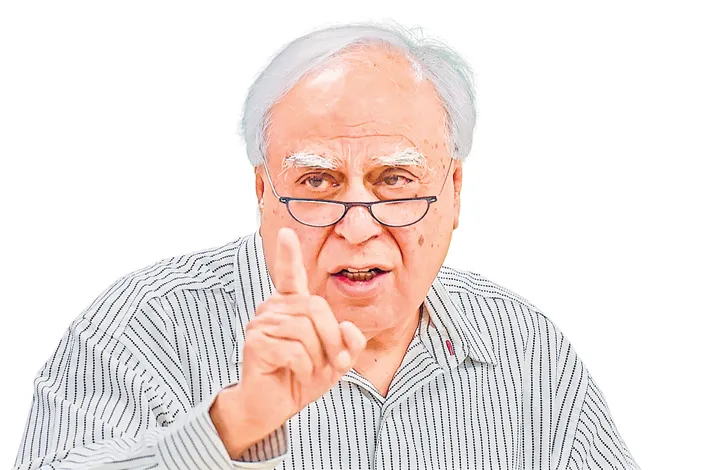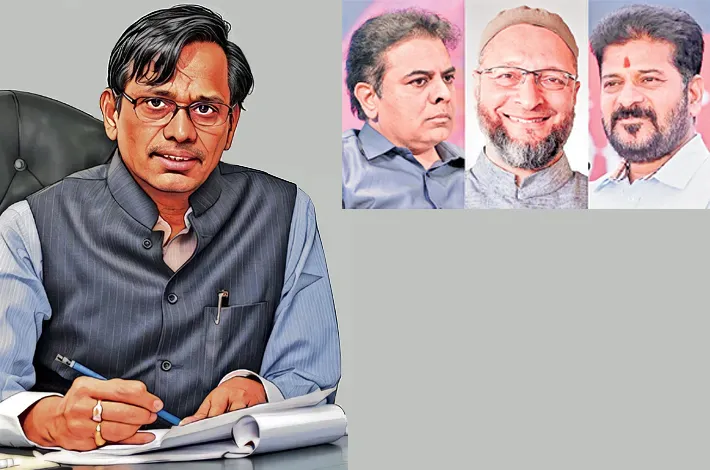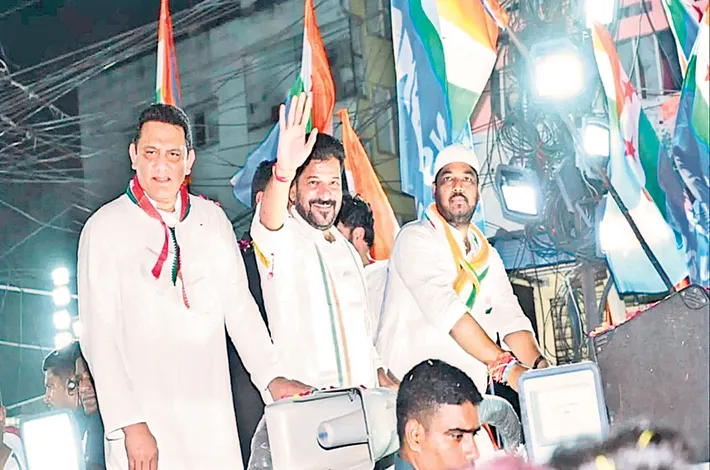Advocate Kapil Sibal Vs MP Kapil Sibal
24-07-2025 12:00:00 AM

This duality—defending Varma in court while advocating for his impeachment in Parliament—raises significant questions about conflicts of interest, the integrity of judicial processes, and the broader implications for India’s legal and political systems
VJM Divakar I hyderabad
The paradox surrounding Kapil Sibal’s involvement in the case of Justice Yashwant Varma presents a compelling intersection of legal ethics, constitutional propriety, and political motivations. As a Senior Advocate of the Supreme Court, Sibal is defending Justice Varma in a legal challenge against an in-house inquiry that indicted the judge for possessing illicit cash.
Simultaneously, as a Rajya Sabha MP, Sibal has been vocal about the need for an impeachment motion against Varma, arguing that any such motion based solely on the Supreme Court’s in-house inquiry is unconstitutional. This duality—defending Varma in court while advocating for his impeachment in Parliament—raises significant questions about conflicts of interest, the integrity of judicial processes, and the broader implications for India’s legal and political systems.
The Paradox: Dual Roles and Conflicting Stances
At the heart of the paradox lies Kapil Sibal’s simultaneous engagement in two seemingly contradictory roles. As a Senior Advocate, Sibal, alongside other prominent lawyers like Mukul Rohatgi, Rakesh Dwivedi, Sidharth Luthra, and Siddharth Aggarwal, is representing Justice Varma in his Supreme Court plea to quash an in-house inquiry report that found him guilty of possessing large amounts of cash discovered after a fire at his Delhi residence in March 2025. Sibal has described Varma as “one of the finest judges” and argued that the in-house inquiry lacks constitutional validity, asserting that only Parliament, through the Judges Inquiry Act of 1968, can investigate judicial misconduct.
Conversely, as an independent Rajya Sabha MP, Sibal has publicly criticized the government’s approach to Varma’s impeachment, alleging it is a selective move to undermine the judiciary’s independence and the Collegium system. He has suggested that the government’s haste in pursuing Varma’s impeachment, while stalling a similar motion against Justice Shekhar Yadav, indicates political motivations. Sibal has urged opposition parties to demand an inquiry into Yadav’s alleged communal remarks before supporting Varma’s impeachment, framing the issue as one of fairness and constitutional adherence.
This duality has sparked public and political scrutiny, with posts on X labelling Sibal a “rat” for his apparent contradiction. Union Minister Kiren Rijiju has called him an “average lawyer” pushing a personal agenda, highlighting the tension between Sibal’s legal and political roles. The paradox raises critical questions: Can a lawyer ethically defend a client while simultaneously advocating for their impeachment? Does Sibal’s stance reflect a principled commitment to constitutional processes, or is it a strategic manoeuvre to serve political ends?
Ethical Dimensions: Legal Representation vs. Political Advocacy
From an ethical standpoint, Sibal’s dual roles challenge the principles of legal professionalism. The Bar Council of India’s rules emphasize that advocates must act in their clients’ best interests without allowing personal or external influences to compromise their duty. By defending Varma in court, Sibal is obligated to uphold his client’s interests, arguing that the in-house inquiry is constitutionally invalid and that Varma is innocent of wrongdoing.
However, his public statements as an MP, which appear to endorse or at least entertain the possibility of Varma’s impeachment, could undermine his client’s case by suggesting a belief in Varma’s guilt or the need for further scrutiny. This creates a potential conflict of interest, as his political rhetoric could prejudice the judicial proceedings he is involved in.
Sibal’s history of navigating such dualities offers context. In 1993, he defended Justice V. Ramaswami during impeachment proceedings, and in 2018, he moved an impeachment motion against then-Chief Justice Dipak Misra. This suggests a pattern of balancing legal and political roles, but the Varma case is unique due to the simultaneity of his actions. Critics argue that Sibal’s public statements as an MP could compromise his impartiality as an advocate, potentially violating the principle that lawyers must avoid actions that undermine their clients’ cases. However, Sibal might counter that his parliamentary role requires him to uphold constitutional principles, which he believes are violated by the government’s selective approach to judicial accountability.
Constitutional and Political Implications
Constitutionally, Sibal’s argument hinges on the supremacy of the Judges Inquiry Act over the Supreme Court’s in-house inquiry mechanism. Article 124 of the Constitution vests Parliament with the authority to remove judges through a prescribed process, which Sibal argues is the only valid mechanism for addressing judicial misconduct. He contends that the in-house inquiry, lacking constitutional backing, cannot serve as the basis for impeachment, and he has criticized the government for bypassing due process in Varma’s case. This stance aligns with his broader critique of the government’s alleged attempts to control judicial appointments by undermining the Collegium system and reviving the National Judicial Appointments Commission (NJAC).
However, Sibal’s simultaneous call for an inquiry into Justice Yadav’s case complicates his position. He argues that the government’s inaction on Yadav, who made allegedly communal remarks at a Vishwa Hindu Parishad event, reflects discriminatory intent to protect certain judges while targeting others like Varma, who is seen as independent. This selective approach, Sibal claims, undermines judicial independence and public trust in governance. Critics, however, see this as a political strategy to deflect attention from Varma’s case and rally opposition support against the ruling BJP, which Sibal has accused of manipulating judicial processes for political gain.
Motivations and Broader Context
Sibal’s actions must be viewed in the context of his political trajectory and the polarized climate in India. As a former Congress leader who left the party in 2022 to become an independent MP with Samajwadi Party support, Sibal has positioned himself as a vocal critic of the BJP government. His advocacy for constitutional supremacy and judicial independence aligns with his broader political platform, including his criticism of the Election Commission and the government’s handling of judicial appointments. However, his dual role in the Varma case risks being perceived as opportunistic, leveraging his legal expertise and parliamentary influence to challenge the government while maintaining a high-profile legal practice.
The paradox also reflects broader tensions in India’s legal-political nexus. The judiciary’s independence is a cornerstone of Indian democracy, yet it is increasingly embroiled in political battles. Sibal’s stance highlights the delicate balance between judicial accountability and political interference, particularly when high-profile cases like Varma’s involve allegations of corruption. The public discovery of cash at Varma’s residence has fuelled speculation, but Sibal’s defense—that no evidence links Varma to the cash—underscores the need for due process. His simultaneous push for Yadav’s impeachment suggests a strategic effort to expose perceived inconsistencies in the government’s approach, but it risks conflating legal and political objectives.








